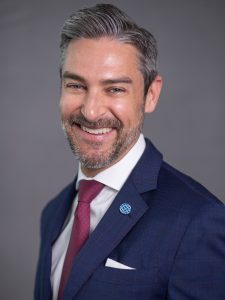As the global community continues to grapple with the coronavirus (COVID-19), the Atlantic Council is open for business. Our business, meetings, and events, however, are occurring virtually. For more information, please read an update from our President and CEO.
On July 21, 2020, the Atlantic Council IN TURKEY and Turkish Heritage Organization organized a virtual discussion on the crisis of the liberal order and the future of global cooperation.
Since the end of the Second World War, the international order is regulated by international institutions and conventions which established a framework for nations to compete and cooperate. This framework, which was proven necessary as a result of of a shared transatlantic history, was based on the US’ willingness to lead with its Allies and partners to defend a liberal international order. The COVID-19 pandemic has exacerbated the existing fragility of the post-Cold War international liberal order caused by the rise of countries such as China and Russia; the disregard for multilateral/supranational organizations and trade agreements as well as international organizations’ ineffectiveness in dealing with conflicts and global challenges.
The emphasis on nation states’ successes in dealing with the pandemic rather than international or supranational organizations, the disruption of global supply chains and discussions around self-reliance and multiple supply chains replacing a single one, compounded by the most severe economic downturn since the Great Depression not only accelerated the current trajectory towards the prioritization of national interests but also brought up to discussion different scenarios about the future framework of global cooperation.
There are numerous pressing global issues that no country can handle alone, from finding a vaccine for COVID-19 to major power competition, climate change, the spread of disinformation, potential security challenges presented by an unstandardized AI or new technologies, global arms control and migration. Despite these challenges, existing mechanisms of the multilateralism are in a deadlock.
Do the current revendications and tendencies about the world order indicate a competition between globalism and neo-mercantilism, between liberalism and nationalism? Does the current system fail as regulations, identities and ideologies outbalance emerging needs? Does the future framework of international cooperation and collective action need to be based on reforms around existing institutions or is there a need to create new institutions? What should be the role of values such as democracy, rule of law and individual freedom in the new framework?
Agenda
Welcoming remarks by
Ali Çınar
President
Turkish Heritage Organization
Defne Sadıklar Arslan
Director, Atlantic Council IN TURKEY
Atlantic Council
Speakers
Damon Wilson
Executive Vice President
Atlantic Council
Gülnur Aybet
Senior Advisor to the President of the Republic of Turkey; Professor at the Turkish National Defense University; and Member of the Presidential Security and Foreign Policy Council
Moderator
Matthew Kroenig
Deputy Director, Scowcroft Center for Strategy and Security and Director, Global Strategy Initiative
Atlantic Council



